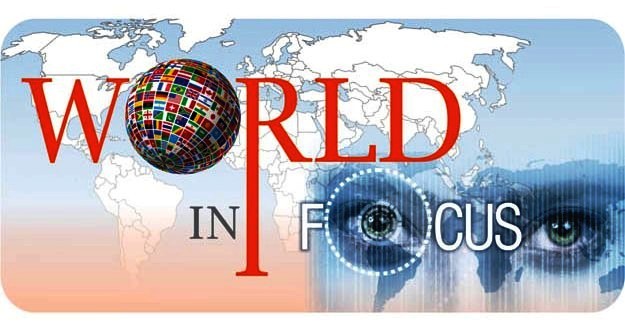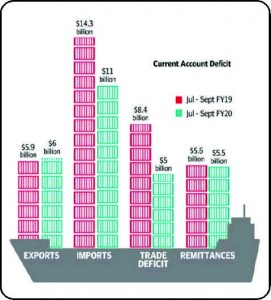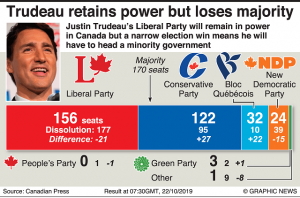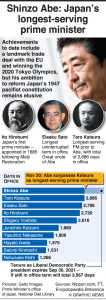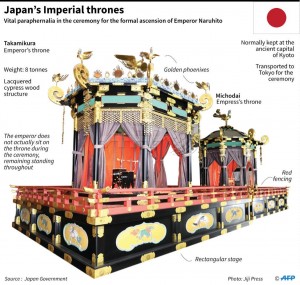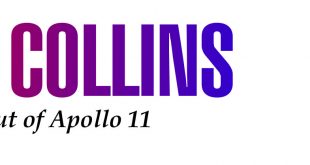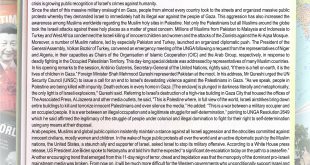INTERNATIONAL
Oct. 16: Etihad Airways and Air Arabia agreed to jointly set up Abu Dhabi’s first low-cost airline “Air Arabia Abu Dhabi”.
Oct. 16: Kenya opened a $1.5 billion Chinese-built railway line linking Nairobi to Naivasha.
Oct. 17: Qatar’s government adopted a new minimum wage law that will scrap mandatory exit visas for all workers.
Oct. 17: US Vice President Mike Pence announced that he had reached a deal with Turkish President Tayyip Erdogan for a ceasefire in northern Syria to end Turkish offensive “Operation Peace Spring” against Kurdish-led forces.
Oct. 19: A team of Egyptian archaeologists discovered a “distinctive group of 30 coloured wooden coffins for men, women and children” in a cache at Al Asasif cemetery on Luxor’s west bank.
Oct. 20: The annual plenary of the IMF and World Bank Group concluded in Washington, DC. WB President David Malpass and IMF Managing Director Kristalina Georgieva addressed the occasion.
Pakistan delegation was led by Adviser to the Prime Minister on Finance and Revenue Dr Abdul Hafeez Shaikh.
Oct. 20: Qantas’s first Project Sunrise test flight reached Sydney.
Project Sunrise is the airline’s initiative to open nonstop services to the Australian east coast from New York and London from around 2022-23.
Oct. 20: Indonesia’s President Joko Widodo was sworn in for a second term.
Oct. 21: Representatives from more than 60 countries – including Israel but not Iran – met in Bahrain to discuss maritime security following attacks on tankers in the Gulf and Saudi oil installations.
Oct. 21: Kazakh President Kassym-Jomart Tokayev handed his long-ruling predecessor significant control over key appointments.
An October 9 presidential order published on the state website of official legal acts, says the president should consult Nazarbayev before appointing heads of state organs and ministers except those holding the foreign, interior and defence portfolios.
Oct. 21: Thailand’s king stripped his royal consort Sineenatra Wongvajirabhakdi of her titles and military ranks for disloyalty.
Oct. 21: Mark Esper made his initial visit to Afghanistan as Pentagon chief.
Oct. 22: Japanese emperor Naruhito formally declared his ascension to the Chrysanthemum Throne as the nation’s 126th emperor.
Oct. 22: Canada’s Prime Minister Justin Trudeau won a second term in national elections.
Oct. 22: Turkey and Russia agreed to remove the Syrian Kurdish YPG militia to beyond 30 km from the Turkish border.
Oct. 22: Swiss top seed Roger Federer celebrated his 1,500th ATP match with a commanding win over Germany’s Peter Gojowczyk.
Oct. 22: India thrashed South Africa in the third Test to complete a 3-0 series rout.
Oct. 22: Sadako Ogata, the first woman to be named the United Nations High Commissioner for Refugees and the first Japanese national to hold that position, died.
Oct. 23: The Indonesian president, Joko Widodo, appointed his former bitter election rival Prabowo Subianto the country’s defence minister.
Oct. 23: Hong Kong’s government officially withdrew the controversial extradition bill which sparked protest and civil unrest.
Oct. 23: British police found the bodies of 39 people inside a truck.
Oct. 23: Thailand’s King Maha Vajiralongkorn dismissed six palace officials for “extremely evil” conduct.
Oct. 23: President Donald Trump announced the lifting of US sanctions against Turkey.
Oct. 23: Former Indian captain Sourav Ganguly was elected president of the Board of Control for Cricket in India (BCCI).
Oct. 24: The European Parliament awarded the Sakharov Prize for human rights to Uighur intellectual Ilham Tohti.
Oct. 24: Saudi Arabia appointed Prince Faisal bin Farhan – a one-time adviser to Crown Prince Mohammed bin Salman and currently ambassador to Germany – the Kingdom’s new foreign minister.
Oct. 24: The World Health Organisation welcomed an “historic step” towards a polio-free world as an expert panel certified that the second of three types of the crippling virus has been eradicated globally.
Oct. 25: Indian government appointed new governors to the newly-constituted Ladakh and Jammu and Kashmir.
Girish Chandra Murmu, the Union Expenditure Secretary, will take over as the first Lieutenant-Governor of IHK. Former defence secretary Radha Krishna Mathur will be the Lieutenant Governor of Ladakh.
Oct. 25: Microsoft cofounder Bill Gates, who is worth $105.7 billion, emerged as the world’s richest person. Amazon founder and chief executive Jeff Bezos lost the title to be at second place.
Oct. 25: Developed countries pledged nearly $10 billion for the UN’s flagship climate change fund, offsetting the impact of US President Donald Trump’s decision to quit the Paris Agreement against global warming.
Several of the 27 donor countries doubled their pledges, including France, Germany and Britain as well as smaller economies like Sweden, New Zealand and Poland. Japan, which again pledged $1.5 billion, remains the largest single contributor with a total of $3 billion since the fund’s creation in 2010.
Oct. 25: The 18th Non-Aligned Movement (NAM) Summit started in Baku, Azerbaijan.
Oct. 26: The Pentagon awarded Microsoft a $10 billion cloud computing contract for the huge project known as Joint Enterprise Defense Infrastructure, or JEDI.
Oct. 27: Belgium’s King Philippe officially named Budget Minister Sophie Wilmes interim prime minister, making her the first woman to hold the post.
Oct. 27: Incumbent President Filipe Nyusi was declared the landslide winner in Mozambique’s election.
Oct. 27: Fugitive leader of the militant Islamic State (IS) group Abu Bakr al-Baghdadi died in a raid by US Special Forces in northwest Syria.
Oct. 27: MotoGP world champion Marc Marquez won the Australian Grand Prix for Honda.
Oct. 28: Tiger Woods made golfing history by winning the Zozo Championship by three shots. The 15-time major winner Woods finished 19-under par to equal US legend Sam Snead’s all-time record of 82 US PGA Tour victories set 54 years ago.
Current Account Update
That the current account is in surplus after four long years is welcome news, of course, but the government must also understand just why it has not quite been received with a sigh of relief by the people. No doubt everybody ought to be happy that the ruling party is really doing something about the bloated deficits, but, then again, there’s only so much happiness they can experience when inflation has got to the point that even prices of essential food items are out of reach of most Pakistanis. Let us not forget that a large majority of the 200 million or so people that live in the country are poor, belonging to the lower-middle and lower income groups. And for them the current economic situation is not something they can bear by simply cutting expenses here and there. For most of them, it is a matter of life and death.
With most people experiencing job losses, or at least lower salaries, since the PTI government took over, and not much chances of finding employment anytime soon, the matter of constantly rising prices – rents, bills, fees, food – is naturally the number one concern. They hoped the SBP governor’s prediction from last quarter, that prices would begin falling soon enough, would prove true. Alas, things seem heading in a rather different direction. That is way indicators and trends mentioned by the PM’s special advisor on finance and SBP governor all the time mean very little to most people. What they do understand, though, is that whatever those in charge said would change things quite simply hasn’t.
And while the rest of us celebrate the progress on the current account front, and quite rightly so, there is that nagging concern that the road back into green has been driven almost only by blocking imports. That in itself is not a bad thing, but tends to run into some trouble when not accompanied by a rise in exports. And our exports haven’t really budged much at all. That is why it is already abundantly clear that all traditional avenues of stimulating exports have failed, particularly debasing the local currency to make end products more attractive to foreign buyers. The problem is incorporating value addition in the export mix, which is a rather long term strategy. Yet it must still start somewhere. Once initiated, it triggers a long cycle of economic linkages, from vocational training, to increased manufacturing, to financing and lastly to more vibrant commerce. Once that process starts, you can take the foot off the imports a little as well; just enough to allow crucial input parts for the large scale manufacturing sector at least.
Oct. 28: Robert Evans, the protean, fast-living Hollywood producer and former Paramount Pictures production chief who backed such seminal 1970s films as Chinatown, The Godfather and Harold and Maude, died. He was 89.
Oct. 28: The European Union agreed a three-month flexible delay to Britain’s exit from the bloc.
Oct. 28: Roger Federer won his 10th Basel title, smothering young Australian Alex De Minaur.
Oct. 28: Papua New Guinea (PNG) beat Kenya to book their place at next year’s T20 World Cup.
Oct. 29: Shakib Al Hasan, Bangladesh’s Test and T20I captain, was banned by the ICC from all cricket for two years, with one year of that sentence suspended, after he accepted three charges of breaching the ICC anti-corruption code.
Oct. 29: Hong Kong democracy activist Joshua Wong, one of the most prominent figures in the otherwise leaderless movement, was barred from standing in upcoming local elections.
Oct. 29: A Nepali mountaineer Nirmal Purja smashed the speed record for summiting the world’s 14 highest peaks, racing up all “8000ers” in just six months and six days.
Oct. 29: Lebanon’s prime minister Saad Hariri submitted his government’s resignation.
Oct. 30: The US House of Representatives passed a historic resolution recognising mass killings of Armenians by Turks a century ago as genocide.
Oct. 30: The United States and six Gulf allies announced sanctions on 25 entities associated with Iran’s Islamic Revolutionary Guard Corps and Lebanon’s Hezbollah.
Oct. 30: Namibia beat Oman to qualify, for the first time, for the next year’s T20 World Cup.
Oct. 30: Australia hammered Sri Lanka to win the second Twenty20 International in Brisbane to wrap up the three-match series.
Oct. 30: Russia‘s most advanced new nuclear-powered submarine successfully test-launched a Bulava intercontinental ballistic missile.
Oct. 30: France emerged as the top-taxed country in the European Union and Ireland the lowest, according to the latest figures released on Wednesday by the bloc’s statistics office Eurostat.
Oct. 30: Jordan recalled its ambassador in Israel over the country’s refusal to free two detained Jordanians.
Oct. 30: The CEO of Norway’s sovereign wealth fund, the world’s biggest, stepped down, as the fund reported a return on investment of $25.6 billion for the third quarter.
Oct. 30: WhatsApp sued Israeli technology firm NSO Group, accusing it of using the Facebook-owned messaging service to conduct cyberespionage on journalists, human rights activists and others.
Oct. 30: Twitter CEO Jack Dorsey announced that his company will no longer allow sponsored tweets promoting political campaigns.
Oct. 30: Dissident political leaders from the Indian state of Manipur said they were unilaterally declaring independence from India and forming a government-in-exile in Britain.
About Manipur
The former princely state of Manipur became part of India in 1949, two years after the country won independence from Britain. It is one of India’s smallest states with a population of about just 2.8 million people. It is located in northeastern India, with majority of the people belonging to the Meitei community. Other ethnic groups of Manipur include the Pangals or the Pangans (Manipuri Muslims), Naga tribes, Kuki/Zo tribes and other communities. It borders Myanmar from the east and other Indian states Nagaland to the north, Mizoram to the south and Assam to the west. Its capital is Imphal city and it is one of the so-called “Seven Sisters” – a group of restive northeastern states. It covers an area of 22,327 square kilometres. Leishemba Sanajaoba is constitutional head of the State (king) of Manipur since 1996.
Oct. 31: China officially kicked off commercialisation of 5G services, with the nation’s big three telecom operators rolling out their 5G data plans.
Oct. 31: Congress formally opened a new, public phase of its corruption investigation into Donald Trump as US lawmakers voted for the first time to advance the impeachment process targeting the US president.
Oct. 31: The Islamic State militant group confirmed the death of its leader Abu Bakr al-Baghdadi and named his replacement as Abu Ibrahim al-Hashimi al-Quraishi.
Nov. 01: German Chancellor Angela Merkel and Indian Prime Minister Narendra Modi signed wide-ranging agreements in New Delhi to deepen strategic cooperation and exchanged notes on ways to boost bilateral trade.
Nov. 01: The conditions in which the people of occupied Kashmir are living are unsustainable and must be improved, German Chancellor Angela Merkel told reporters accompanying her on a trip to New Delhi where she held talks with India’s prime minister.
Nov. 01: The UN labour organisation agreed not to renew controversial funding from tobacco companies for charitable programmes.
Nov. 01: US President Donald Trump announced that he will change his permanent residence from New York to Palm Beach, Florida.
Nov. 02: South Africa won the Rugby World Cup for the third time.
Nov. 03: El Salvador ordered Venezuela’s diplomats to leave the country in a challenge to their president Nicolas Maduro.
Nov. 03: Saudi Arabia’s giant state oil company Aramco finally kick-started its initial public offering (IPO).
Nov. 03: Northern Irishman Rory McIlroy won the WGC-HSBC Champions.
Nov. 03: Ashleigh Barty beat defending champion Elina Svitolina to claim the WTA Finals title.
Nov. 04: British MPs began the selection of their new speaker to replace John Bercow, who enraged the government but won a global following with his parliamentary rulings on Brexit.
Nov. 04: The United States slapped sanctions on nine aides to Iran’s supreme leader Ayatollah Ali Khamenei on the 40th anniversary of revolutionaries seizing the US embassy in Tehran.
Nov. 04: A US appeals court ruled that President Donald Trump must release eight years of tax returns.
Nov. 04: Jean-Paul Dubois’s the Prix Goncourt, the moving and colourful epic about a prisoner looking back on his life, won France’s top literary award.
Nov. 04: Romania’s liberals succeeded in getting parliamentary approval to form a new government.
Nov. 04: French cyclist Jacques Dupont, who won a gold medal at the 1948 Olympic Games in London, died at the age of 91.
Nov. 04: New Delhi banned half the Indian capital’s private cars from its roads as the megacity’s 20 million people spluttered with stinging eyes in the worst pollution in three years.
Nov. 04: Kenyan half marathon world record holders Geoffrey Kamworor and Joyciline Jepkosgei powered to victories in the New York City Marathon.
Nov. 04: World number one Novak Djokovic won a record-extending fifth Paris Masters title.
Nov. 05: Turkish forces in northern Syria detained a sister of Abu Bakr al-Baghdadi, the leader of the Islamic State group who was killed in a US raid.
Nov. 05: The United States formally notified the United Nations that it is withdrawing from the Paris climate accord. The US will be officially out on Nov 4, 2020, one day after the presidential election.
Nov. 05: Yemen’s internationally recognised government signed a power-sharing deal with southern separatists, in a Saudi-brokered initiative to end a conflict simmering within the country’s civil war.
Nov. 06: China and France signed commercial deals totalling $15.1 billion in fields such as aviation, energy, agriculture and finance to boost cooperation and vowed to jointly safeguard multilateralism and free trade.
Nov. 06: Chinese leader Xi Jinping and French President Emmanuel Macron declared that the Paris climate pact was “irreversible”, showing a united front in the wake of Washington’s formally withdrawing from the accord.
Nov. 06: Extinction Rebellion climate-change activists won a legal challenge in London’s High Court against a police-imposed blanket ban on protests during its “Autumn Uprising” in the British capital.
Nov. 07: A Congolese rebel chief nicknamed the Terminator received a 30-year jail term from the International Criminal Court for war crimes and crimes against humanity, the longest ever sentence given out by the tribunal.
Nov. 07: The Indian government announced to revoke the Overseas Citizen of India (OCI) card to author and journalist Aatish Taseer over his alleged attempt to “conceal information” that his father, Salmaan Taseer, was of Pakistani origin.
Nov. 08: A New York state judge ordered US President Donald Trump to pay $2 million for misusing his namesake charitable foundation, resulting in funds being used to advance his 2016 presidential campaign.
Nov. 08: The EU formally established its first standalone border force, boosting the Frontex service with a new permanent corps that will number 10,000 officers by 2027.
Nov. 08: Brazil’s Supreme Court voted to overturn a ruling requiring convicted criminals to go to jail after losing their first appeal, paving the way for leftist icon Luiz Inacio Lula da Silva to be freed.
Nov. 09: India’s Supreme Court allowed construction of a temple at the site where once the 16th century Babri Masjid stood.
Nov. 09: Brazil’s leftist icon Luiz Inacio Lula da Silva walked free from jail after a year and a half behind bars.
Nov. 10: Bolivian President Evo Morales resigned, caving in following weeks of violent protests over his disputed re-election.
Nov. 12: The Financial Times announced that its deputy editor, Roula Khalaf, would take over as the newspaper’s editor next year, the first woman to hold the post.
Nov. 12: Spain’s King Felipe VI began first state visit by a Spanish monarch to the former colony, Cuba to celebrate the 500th anniversary of the capital Havana.
Nov. 12: The EU’s top court ruled that food products from occupied Palestinian territories must be labelled as such, drawing an angry response from Israel which slammed a “double standard”.
Nov. 12: Defending champion Alexander Zverev beat Rafael Nadal to win the ATP Finals.
Nov. 13: Another congressional panel reviewed the consequences of India’s decision to revoke the valley’s special status. “We have concerns about Kashmir, and we are watching the situation very closely,” says Eliot L. Engel, Chairman of the House Foreign Affairs Committee.
Nov. 14: The Kuwaiti prime minister Sheikh Jaber Mubarak Al-Sabah resigned along with his cabinet, amid allegations of infighting between ministers and criticism of their performance.
Nov. 14: The International Criminal Court said approved a prosecution request to investigate crimes against humanity against Myanmar’s Rohingya minority who were systematically driven across the border to Bangladesh.
The ICC is now the second international court to look into alleged atrocities against the Rohingya, after Gambia filed a claim with the International Court of Justice (ICJ) against Myanmar for carrying out an alleged genocide against the Muslim minority. The ICJ is the United Nations’ top court for disputes between states.
Nov. 15: Russia returned two Lithuanians and a Norwegian convicted of espionage to Vilnius in an espionage swap that also saw Nato and EU member Lithuania free two Russians jailed for spying in an exchange reminiscent of the Cold War.
Nov. 15: Chile announced to hold a referendum to replace the country’s dictatorship-era constitution.
 Jahangir's World Times First Comprehensive Magazine for students/teachers of competitive exams and general readers as well.
Jahangir's World Times First Comprehensive Magazine for students/teachers of competitive exams and general readers as well.
